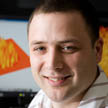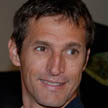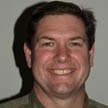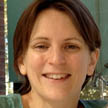I’m a Scientist is like school science lessons meet the X Factor! School students choose which scientist gets a prize of $1000 to communicate their work.
Scientists and students talk on this website. They both break down barriers, have fun and learn. But only the students get to vote.
This zone is the Boron Zone. It has a range of scientists studying all different topics. Who gets the prize? YOU decide!









My understanding is that it is mostly overwhelmingly accepted. There was a lot of debate about 50 years ago, but more and more observational data strongly supports the big bang scenario. However, there have been a lot of problems with it along the way as new discoveries have been made … which have led to a lot of tinkering along the way! I once read that if all the observational data were given to scientists at once, it is very unlikely they would come up with the standard big bang cosmology as we currently understand it! There are some big questions still to be answered that might entirely change our understanding – What is dark matter? What is dark energy? Where has all the antimatter gone?
1
As Matthew said, the most accepted theory with the most evidence is the Big Bang theory. There are other theories, such as the Steady State theory, which says that the Universe always existed, but they are largely discredited now, since none of the evidence supports them.
There are things that the Big Bang theory doesn’t explain well though, such as dark matter, dark energy and inflation, and these are areas where scientists are actively trying to find out what’s going on. Just when we think we understand things, new observations come along that don’t fit with our ideas. This happens a lot in science, and is why it’s so exciting (and challenging)!
0
Think Simon and Matthew have covered it!
0
There are probably lots of stories from ancient cultures and religion as well as those supported by science. For example Indigenous Australians have their dreamtime culture which explains how life and landscapes were created.
0